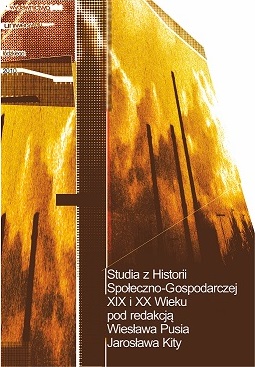Konstanty Wolicki (1792 – ok. 1860). Ziemianin – przemysłowiec – polityk
DOI:
https://doi.org/10.18778/2080-8313.07.03Abstrakt
Not much is known about the personal life of Konstanty Wolicki. His life and career essentially came to an end after the November uprising, his property was confiscated, and he was marginalized from contemporary life. The work of historians has been hindered by the fact that he did not leave many documents after his death. War damage, particularly in relation to tax records, has also had an effect on the poverty of sources.
Wolicki’s life was divided into three areas of activity – estate management (about which we know the least), industrial activity (the most effective) and high politics, where he met with catastrophe. A catastrophe that was shared with the defeat of the Polish campaign for independence.
The scale of Wolicki’s business ventures was impressive. He was engaged in the extraction and smelting of zinc, the extraction of coal, salt production and the building of a salt-works in Ciechocinek. He acquired a state monopoly and traded in zinc, and also tried to reactivate the Olkusz mines. In addition to this, he represented the Kingdom of Poland on challenging trade missions – in negotiations for the purchase of salt, British machines, loans, the employment of specialists – and on scientific missions (methods for prospecting salt and foreign technology in mining and metallurgy).
His activities also throw a lot of light on the economic policy of the time, and in particular the person at the helm – Ksawery Drucki-Lubecki. It is hard not to notice that, as in the case of his powerful protector – Lubecki, the November uprising ended the career of Konstanty Wolicki, and also his successful business ventures.
Pobrania
Opublikowane
Jak cytować
Numer
Dział
Licencja

Utwór dostępny jest na licencji Creative Commons Uznanie autorstwa – Użycie niekomercyjne – Bez utworów zależnych 4.0 Międzynarodowe.









